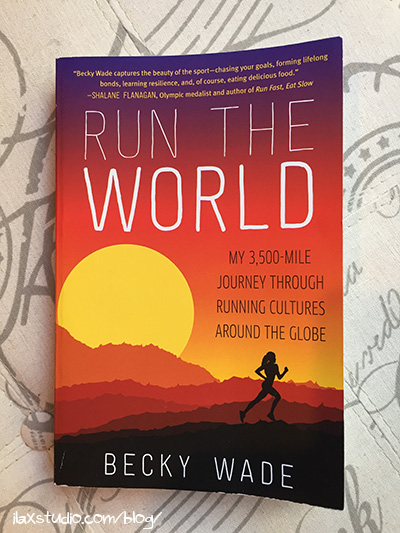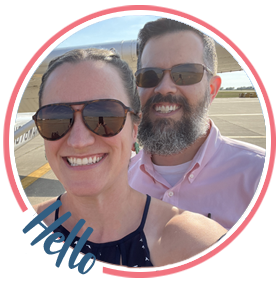For my birthday, Gina gave me a copy* of Run the World, the recently published memoir documenting elite athlete Becky Wade’s one-year post-college grant-funded journey across the world she took in 2012/2013 to study different running cultures.
How’s that for a mouthful? Ha.
After graduating from Rice University in 2012, and wanting adventure before pursuing a professional running career, Becky Wade traveled to different countries to experience their running culture. Her travels were funded by the Thomas J. Watson Fellowship, which is awarded each year to forty graduating college seniors to travel the world to do research in their field of interest.
Wade’s travels included:
- England (during the 2012 Summer Olympics)
- Ireland
- Switzerland
- Ethiopia
- Australia
- New Zealand
- Japan
- Sweden
- Finland
- and more!
In each location, she housed with locals (some being local expats), sometimes staying for a long weekend, and sometimes staying for weeks. Overall, she stayed in seventy-two different beds! And, ran over 3,500 miles during her year of travels!
Her goal during the trip was to study the nuances of the training styles of the area she was in, and overall, to compare them all to one another (and ultimately, it seems, see what works best for her). For example, she learned that the Ethiopians (and some Kenyans she ran with in England) tend to do a very long warmup before their workout, rarely wear a watch, run on technical trails as much as possible, and have no idea how many miles they’ve run. The Japanese, in contrast, are very focused on running high mileage all of the time (and tracking it), but also take their recovery and relaxation process very seriously (with public baths and acupuncture).
Wade also focuses on food and shares a local recipe at the end of each chapter. She is surprised to learn that Ethiopians fare so well on a very high carb diet, when Americans are still in a “carbs are bad!!!” phase. One of her great pleasures during her travels is trying all of the local foods, which was interesting to read about.
Those are just small examples (that you were probably already aware of, ha), but the book really does give insight to the state of running where she is traveling, which I enjoyed. I’m not sure I’ll ever get to run in these places, so it was fun to imagine what it was like, as I was reading (and to look up the places she was talking about on google maps, and later, look at photos on her blog).
I did find some of the writing hard to focus on – her writing style didn’t always click for me, and I felt a bit distracted while reading this – but it got better as I got further in to it.
And man, she mentions the 2016 Summer Olympics a TON, which was awkward, knowing that she didn’t get to participate in them! But the book ends on a uplifting note – her marathon debut, and win, at the 2013 California International Marathon.
I love memoirs (because I am so nosy?) so I enjoyed reading this, and recommend it! Traveling the world for the year to explore running cultures sounds like a major treat, and reading about it was a treat, as well.
*This is my way of telling you that this is not a sponsored post



Wow, that sounds like a really fascinating read. I like memoirs, too.
Oh my gosh I need to read this book! I was an anthropology major for my first undergrad degree and so this combines two of my favorite things: anthropology and running. One of my favorite things about my 7 continent quest was seeing the local running culture in each place.
It sounds like it’s right up your alley! Let me know if you read it and what you think of it! 🙂
I can’t even imagine traveling like that …I think experiences are the best. I will put it on my one day I’ll read it list.
Wow, what an interesting book and idea! I’m sad the writing is not excellent because I’d probably try to get Harrison to read it.
Interesting how the training styles are so different! I’ll have to read it, and maybe she addresses this, but I wonder if populations that are more homogenous do better with a more uniform training style (like, Japan or Kenya) whereas more mixed groups like the UK and US have a less-defined set of principles guiding their training!
It’s not so much errors in writing as it is the flow of the writing, you know?
That is a really interesting idea! She kind of tried to find and focus on the set style for each area she was in, but she did experience different running groups in some areas!